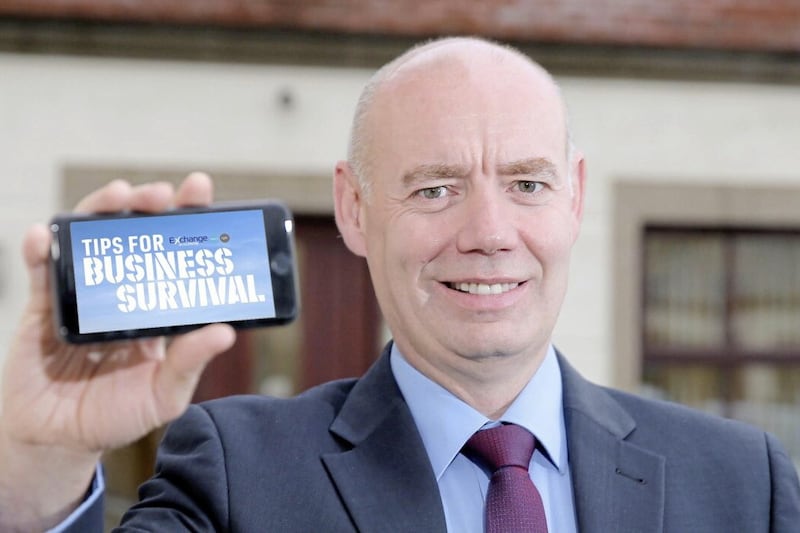THE ability for small businesses in Northern Ireland to access alternative forms of finance has become a vital factor in their successful growth, the head of a Belfast accountancy firm insists.
Since the financial crash and credit crunch, the funding void left by traditional lenders has been filled by boutique funders and alternative finance, which can allow SMEs to access finance for a variety of different needs, from long term investment through to funding for short term working capital.
But according to Conor Walls, managing director at Exchange Accountants, the key to small firms securing successful alternative financing is to understand what their requirements are and to know what’s on offer, so that they can secure the best possible deal for their business.
With the continuous improvement in technology and the ever-growing popularity of online banking, banks and building societies have continued to close branches across Northern Ireland, and by the end of 2018 over 43 per cent of bank branches available in 2010 will have shut.
"As a result, businesses have had to adjust to the reality that accessing finance from traditional lenders has become much more difficult, and the ability for SMEs to access finance to grow their business is no longer a simple case of hoping the local bank manager likes the ‘cut of your jib’," Walls says.
"Businesses can access alternative financing through a range of different forms, but most commonly it is secured via friends and family, peer-to-peer lending, angel investors, venture capital investors, crowd funding, equity finance, invoice financing and asset finance.
"Funders will often have key criteria which must be satisfied before any finance is provided, and borrowers can expect to be required to explain in detail what the growth potential of the business is and how the money is going to be used, as well as showing how they will be able to repay the borrowings and what security the borrowers can offer."
He added: “The financial world is constantly evolving, and it’s no surprise we’ve seen local businesses embrace alternative finance.
“In recent months we've found ourselves working with clients to access alternative finance for a variety of needs, from loans in excess of £100,000 for long term investment through to funding for shorter term working capital requirements”, he added.
Funders will often have key criteria which must be satisfied before any finance is provided, and borrowers can expect to be required to explain in detail what the growth potential of the business is and how the money is going to be used, as well as showing how they will be able to repay the borrowings and what security the borrowers can offer.
Securing alternative finance may appear to be a daunting prospect to the uninitiated, but according to Walls the most important step business owners must take is to educate themselves on the pros and cons of each method of funding and ensure they are as prepared as possible.
He added: “Having a real understanding of what’s on offer is crucial to securing successful alternative financing, and I advise every business owner to ask questions and consider their options.
“We spend a lot of time working with our clients to help them secure the funding that suits their business needs. This ranges from identifying their value proposition, preparing profit and loss and cash flow projections to show funding requirements and, more importantly, the ability to repay any borrowings, through to preparing an application and meeting with a funder on their behalf.
“The key to successfully securing alternative financing is to know what your requirements are and to arm yourself with the knowledge to identify the best possible deal for your business,” he added.
Established in 2011 with officers near Belfast City centre, Exchange Accountants provides a range of accountancy services and tax advice to a wide variety of locally based SMEs and individuals.
The company has developed a specialism in digital and cloud accountancy services and was the first accountancy practice in the north to be recognised as a Gold Partner with market-leading cloud accountancy software provider Xero.



